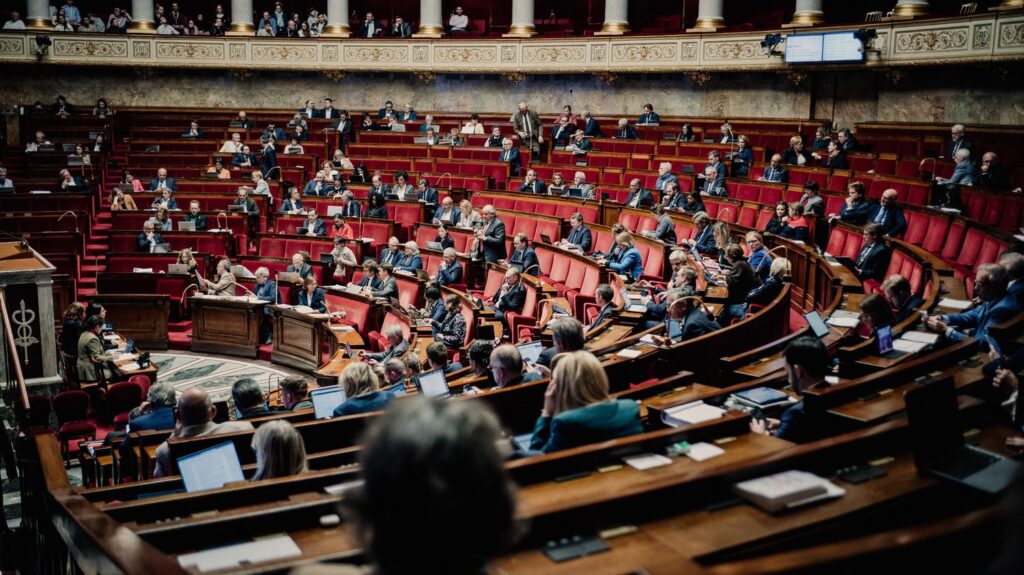This new version of the real estate wealth tax should make it possible to tax more property and assets. It was voted for by the MoDem, the RN and the PS. But the rest of the left fears a weakening of revenue for the State.
/2023/07/06/64a68815cd1a7_placeholder-36b69ec8.png)
Published
Reading time: 6min
/2025/11/02/080-hl-bohier-2938801-6907556bebcdd673474792.jpg)
The return of the wealth tax? After the rejection of the Zucman tax, a majority of deputies adopted on Friday October 31 a transformation of the real estate wealth tax (IFI) into an “unproductive wealth tax” in the 2026 draft budget. The amendment, presented by the MoDem and also voted for by the National Rally (RN), the Socialist Party (PS) and the Liot group must “encourage productive investment” by taxing certain goods and investments more. But its exact scope and precise output remain to be clarified.
1 How would this tax work?
This “tax on unproductive wealth” is a new version of the IFI. The latter itself replaced the wealth tax (ISF) in 2018, by restricting the base – the basis on which the tax is calculated – to only real estate with a value greater than 1.3 million euros net. The payment threshold for this new tax is maintained at 1.3 million euros, but the base is extended to all so-called “unproductive” assets. In addition to real estate, this includes precious objects, cars, yachts, works of art, airplanes, cryptocurrencies, cash, financial investments not invested in companies or certain life insurance products. Professional assets are always excluded from the calculation of this tax.
If this “unproductive fortune” exceeds a value of 1.3 million euros, it will now be taxed at 1% – compared to a rate of 0.5 to 1.5% with the IFI. The centrist deputy Jean-Paul Mattei, at the origin of the amendment, justifies this change with a “concern for readability and efficiency”. The tax threshold at 1.3 million euros was maintained under a socialist sub-amendment, while the MoDem deputy’s initial project planned to raise it to 2 million.
However, there are exceptions. In the text voted by the National Assembly, the main residence is thus exempt up to 1 million euros. The real estate wealth tax provided for a reduction of 30% of the value of the main residence. On the other hand, as is already the case for the IFI, rented goods are affected by this tax, a sub-amendment of the PS having also modified that of the MoDem which planned to exempt those rented for a period of more than one year meeting environmental criteria.
2 How much could he bring in?
According to the General Directorate of Public Financesthe IFI brought in 2.2 billion euros in 2024, paid by 186,000 households, or around half as much as the ISF in 2017, which then brought in 4.2 billion euros. The new “tax on unproductive wealth” has a still uncertain yield. The Socialist Party claims 2 billion more than the IFI, while La France insoumise, very angry against the measure, rather fears a drop in revenue for the State.
“The choice of a single rate of 1% leads to potentially reducing the yield of the new IFI for the highest assets”analyzes Rayan Nezzar, advisor to Gabriel Attal, who teaches public finance at Sciences Po. “At first analysis, the effect on revenue appears weak, the broadening of the base being partly neutralized by the reduction in the higher rate”confirms Quentin Parrinello, director of public policies at the European Tax Observatory, to the World.
According to the Ministry of the Economy and Finance, costing is underway. “To tell you if we are between 1 and 3 billion is not possible for me as I speak. We are in that range,” said the Minister of Public Accounts, Amélie de Montchalin, Friday evening.
Who are the parties for this tax?
The amendment to the 2026 budget proposing the creation of this “unproductive wealth tax” was tabled by Jean-Paul Mattei, from the ranks of the MoDem. It was modified by amendments from the Socialist Party. These two groups voted in favor of this measure, as well as deputies from the National Rally and the independent Liot group. The socialist deputy Philippe Brun sees in this “new ISF” a “real victory” in favor of a “fairer taxation”. Marine Le Pen and her group were delighted to have obtained “a great victory” inspired by the economic program of the former presidential candidate of the National Rally.
But this heterogeneous alliance has once again demonstrated the difficulties in building a broad compromise on the budget. Because neither the right, nor Renaissance, nor the rest of the left mainly voted for this tax. Macronist MP Prisca Thévenot considered that what had been voted on was “a tax invented by Marine Le Pen herself” and in no case the return of the ISF, “otherwise (…) rebellious France would have voted for it”. “We weakened the IFI without even reintegrating the ISF”also estimated the rebellious deputy Eric Coquerel, president of the finance committee.
Will it appear in the 2026 budget?
The parliamentary journey is far from over for this “unproductive wealth tax”. If the revenue part of the finance bill is adopted in the National Assembly, it will then have to pass the Senate stage, which could modify the budgetary text, then a possible joint committee, made up of senators and deputies, which would be required to develop a compromise version of the budget. The amendment could therefore be further modified, or even abandoned, between now and the final vote on the budget… itself still very uncertain.


